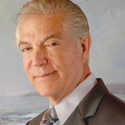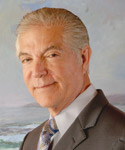This is important to NHMC because, too often, Latinos are either absent or negatively stereotyped and made to seem like “the other” in the mainstream media. Latinos need to own media outlets to counterbalance these inequities.
When Latinos own the media, they open doors for other Latinos to tell their stories in their own authentic voices. Latinos are not caricatures, but rather relatable, three dimensional people. Historically, non-Latino owners have done a poor job of lifting up authentic Latino voices and characters. In the worst cases, non-Latino owners have allowed attacks against Latinos over their airwaves. This is often the case on programs airing over the Clear Channel Radio conglomerate’s stations. Even most well intentioned non-Latino owners have no idea how to reach the burgeoning Latino audience. On these stations we see a dearth of Latinos in front and behind the camera, and when Latinos are depicted, we often see stereotypical portrayals that exacerbate negative and inaccurate feelings towards the Latino community. When asked how Latinos are depicted in media, a stunning majority of national poll respondents said that Latinos are far more likely to be depicted as gang members and criminals than as judges and teachers. This is not an accurate depiction of Latinos in this country.
There is not much the FCC can do about hate speech and stereotypes in media. The agency is responsible for ensuring that broadcasters serve the public interest, but the First Amendment tightly limits the FCC’s capacity to regulate content. The FCC could examine the issue of hateful and stereotypical programming, shining a light on this issue without imposing regulations, as NHMC has been requesting for years, but thus far it has declined to do so. At the very least, the FCC should do no harm with its structural regulations – like the media ownership limits – by retaining any rules that promote diversity. FCC data reveals that despite comprising over one third of the U.S. population, people of color own only 3.6 percent of broadcast television stations and just 8 percent of broadcast radio stations. Latinos, the largest “minority” group in the U.S., comprising over 16 percent of the population, own less than 3 percent of full power commercial television and FM radio stations and only 4.5 percent of AM radio outlets. The FCC has a duty to promote ownership diversity, and these numbers demonstrate that it is failing.
If I may digress for one moment, I want to emphasize the importance of having positive Latino media images. One in five schoolchildren and one in four newborns in the United States are Latino. As a society, we should be VERY alarmed that many media outlets spew hate and stereotypes towards a significant portion of tomorrow’s adults. Studies show that this harms their self esteem and their academic performance. If we can change the image of Latinos now, we will empower this generation of children to be our doctors, teachers and other important members of society. One way to do that it is to promote greater ownership diversity.
I love digital media as much as the next person, but traditional news media like newspapers and broadcasters are still the bee’s knees when it comes to quality news production. Communities of color tend to rely on these media more than other demographic groups. So, to maintain and enhance viewpoint diversity, FCC Chairman Julius Genachowski should avoid the urge to allow more consolidation in these fields. He should seize this very precious opportunity to do something great for groups of people that have been disserviced by traditional media for generations by pressing forward with detailed studies on how to promote diverse ownership. He should be very careful not to fall into the same position as many well-intentioned broadcasters that just don’t “get it” when it comes to serving this country’s growing Latino population.
Alex Nogales is the president & CEO of the National Hispanic Media Coalition. The National Hispanic Media Coalition (NHMC) is a non-partisan, non-profit, media advocacy and civil rights organization created to advance American Latino employment and programming equity throughout the entertainment industry and to advocate for telecommunications policies that benefit Latinos and other people of color.








